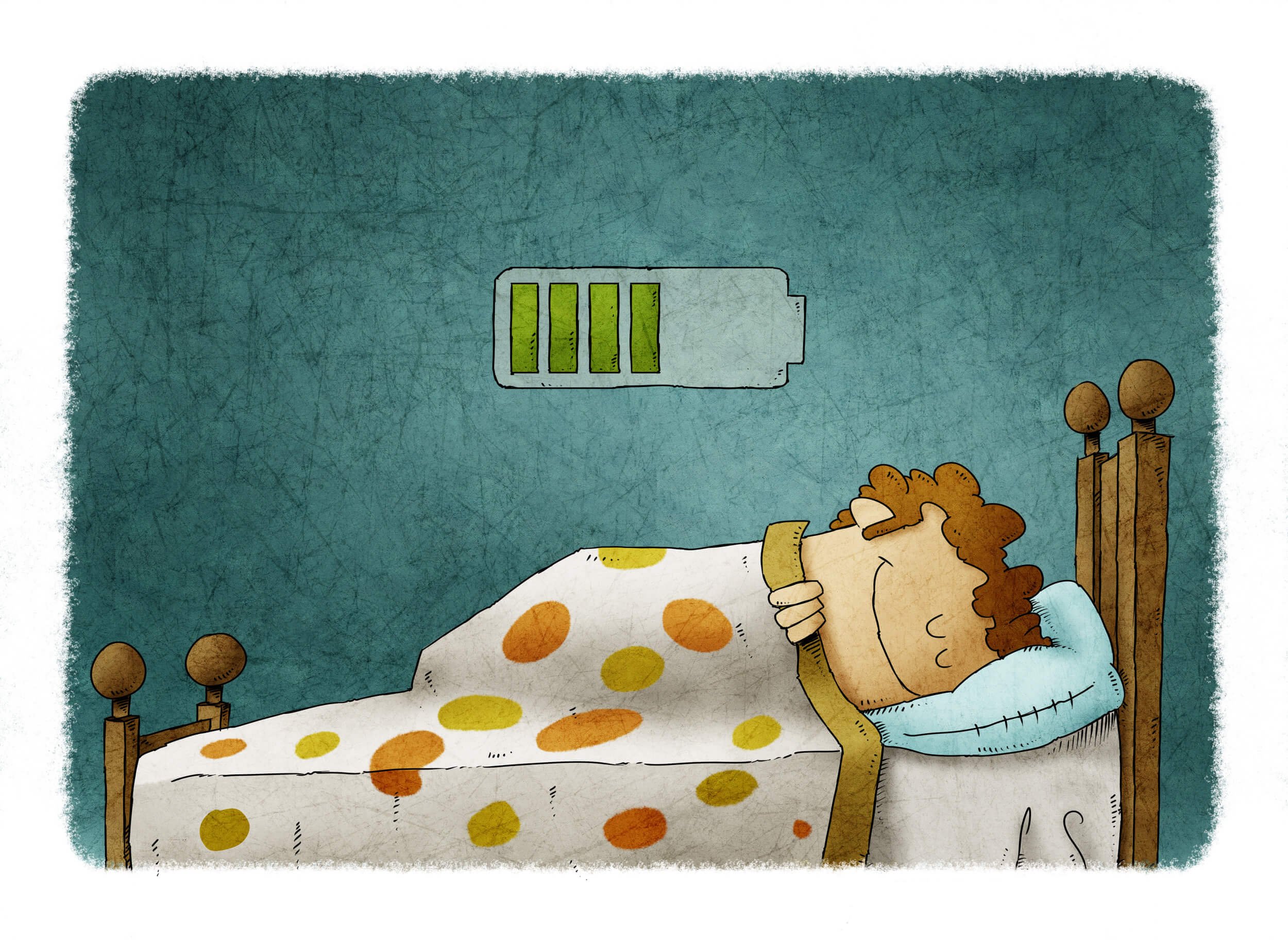Most people brush off small signs of illness, thinking they’ll go away on their own. A little fatigue? Just a long day. A scratchy throat? Probably just dry air. But ignoring early signs you’re getting sick can make things worse before you even realize what’s happening.
Your body gives warning signals when something isn’t right. Paying attention to these small changes can help you rest, recover, and avoid getting worse. The sooner you act, the easier it is to stop an illness from taking over. Simple things like drinking more fluids, getting extra sleep, and supporting your immune system can make a big difference.
Some symptoms don’t seem serious at first, but they often come before a full-blown cold, flu, or infection. Knowing what to look for can help you stay ahead of it. Here are five early signs you’re getting sick that most people ignore—but shouldn’t.
1. Unusual Fatigue That Feels Different
When Tiredness Is a Warning Sign
Some days are exhausting, but if you’re suddenly feeling wiped out for no reason, it might be more than just a bad night’s sleep. Early signs you’re getting sick often start with fatigue that feels heavier than usual. It’s not just sleepiness—it’s the kind of tiredness that makes everyday tasks feel harder than they should.
Not all fatigue is the same. Feeling drained after a long day or a tough workout is normal. But when simple activities like walking up the stairs or making breakfast leave you feeling completely wiped out, it could be your body’s way of telling you an illness is on the way.
What Causes This Sudden Fatigue?
Energy levels drop when your immune system kicks in to fight off an infection. Instead of keeping you alert and active, your body shifts its focus to attacking viruses or bacteria. This response can leave you feeling sluggish before any obvious symptoms appear.
Several illnesses cause early fatigue, including the flu, colds, and even more serious infections. A sudden drop in energy could also be linked to conditions like anemia, dehydration, or low blood sugar.
What to Do About It
Resting is the best thing you can do. Pushing through the fatigue will only make it harder for your body to fight off sickness. Drink plenty of fluids, eat nutrient-rich foods, and get extra sleep.
If extreme tiredness lasts for more than a few days, or if it comes with other symptoms like fever or dizziness, it’s time to check in with a doctor.
2. A Scratchy or Sore Throat Without a Cold
Not Just Dry Air—Why Your Throat Feels Off
Waking up with a sore throat doesn’t always mean you’re sick. Maybe you slept with your mouth open, or the air in your home is dry. But when that scratchy feeling lingers, it could be one of the early signs you’re getting sick before anything else shows up.
A throat that feels rough or irritated might be the first sign of an infection. Many people ignore it until a full-blown cold or fever hits, but catching it early can help stop things from getting worse.
Possible Underlying Causes
Several infections start with a sore throat. Viruses like the flu, the common cold, and even COVID-19 often cause throat irritation before other symptoms appear.
Bacterial infections like strep throat can also start with soreness, usually followed by a fever. Allergies can cause a similar scratchy feeling, but they usually come with sneezing and itchy eyes instead of body aches.
How to Soothe and Prevent It from Worsening
Drinking warm liquids, using a humidifier, and gargling salt water can ease discomfort. Staying hydrated helps, too—dryness makes the irritation worse.
If the soreness lasts more than a few days, gets worse, or comes with white spots in the throat, seek medical attention. Some infections need antibiotics to clear up.
3. Feeling Cold When Everyone Else Feels Fine
Sudden Chills or Temperature Sensitivity
Ever felt freezing while everyone else seems comfortable? That might be one of the early signs you’re getting sick that many people ignore. Chills can be a sign that your body is raising its internal temperature to fight off an infection.
Even if you don’t have a fever yet, feeling unusually cold could mean your immune system is working in overdrive.
What This Could Indicate
The flu is a common culprit. Many people experience chills before their temperature spikes. Other viral infections, like COVID-19 or even stomach bugs, can also cause this reaction.
Bacterial infections sometimes bring on abnormal temperature regulation as well. If chills come with muscle aches, a sore throat, or fatigue, illness is likely setting in.
How to Respond
Layering up with warm clothes and blankets helps, but overheating isn’t good either. Drink warm fluids, rest, and watch for other symptoms.
If a fever follows or the chills last too long, consider seeking medical advice. Some infections need treatment before they worsen.
4. Subtle Digestive Changes
When Your Stomach Signals Something’s Off
Most people think of colds and flu as affecting the nose and throat, but digestive issues can be one of the early signs you’re getting sick too. Sudden nausea, stomach pain, or appetite loss could mean your body is fighting an infection.
Digestive symptoms don’t always come with obvious signs like vomiting or diarrhea. Sometimes, a mild stomach ache or feeling “off” after eating can be an early warning.
Why Your Gut Reacts Before Other Symptoms
The gut and immune system are closely connected. When your body senses a virus or bacteria, it might react by slowing digestion or triggering nausea as a defense.
Viral infections, food poisoning, and even stress-related illnesses can start with stomach discomfort before anything else shows up.
What to Watch For
Pay attention to small changes. If food isn’t sitting right, or if you’re feeling queasy for no clear reason, take it easy. Stick to light, bland foods and stay hydrated.
Severe stomach pain, vomiting, or ongoing digestive issues should be checked by a doctor, especially if they come with other symptoms like fever or chills.
5. Persistent Headache with No Clear Cause
When a Headache Isn’t Just a Headache
Headaches happen for many reasons—stress, dehydration, or staring at screens too long. But when one appears out of nowhere, it could be one of the early signs you’re getting sick before anything else becomes obvious.
Some infections, like the flu or sinus infections, cause headaches before other symptoms show up. If you feel pressure in your head along with tiredness or chills, sickness could be on the way.
Why Illness Triggers Headaches
When the immune system kicks in, inflammation spreads throughout the body, sometimes affecting the nerves around the brain. Dehydration from an oncoming illness can also lead to headaches.
Even mild infections can trigger headaches as the body fights back. If one comes with body aches or fever, it’s likely connected to an illness.
How to Ease Symptoms and When to Seek Help
Drinking plenty of water, resting, and taking over-the-counter pain relievers can help. Avoiding bright screens and loud noises also makes a difference.
If the headache becomes severe, lasts longer than usual, or comes with vision changes or confusion, get checked by a doctor. Some headaches signal more serious conditions.
Final Thoughts on Catching the Early Signs of Illness
Small symptoms often get brushed off, but they can be the first early signs you’re getting sick. Feeling more tired than usual, dealing with a scratchy throat, or getting unexpected chills might not seem like a big deal—but they’re signals your body is working harder than normal. Catching them early can help prevent a mild illness from turning into something worse.
Ignoring these signs means your body has to fight harder, which can drag out recovery. Paying attention and taking simple steps—resting, staying hydrated, and avoiding unnecessary stress—gives your immune system the boost it needs.
Tuning in to small changes makes all the difference. The sooner you take action, the better chance you have of bouncing back quickly. If symptoms linger or get worse, don’t hesitate to seek medical advice. Listening to early signs you’re getting sick is one of the best ways to stay ahead of illness and keep feeling your best.















